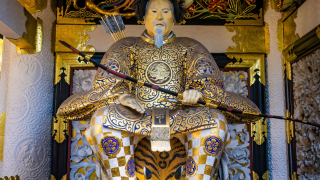 LOANWORD
LOANWORD What Is a Shogun? An Easy-to-Understand Explanation of Japan’s Supreme Leader Who Shaped the Samurai Society
The term “Shogun” refers to Japan’s supreme military leader who governed the nation on behalf of the Emperor for centuries. Far beyond a political title, the Shogun embodied discipline, authority, and cultural refinement, shaping Japan’s society from the medieval era to modern times. This article explores the origins, evolution, and influence of the Shogun system in a way that helps readers understand how this role defined Japan’s unique balance of power and tradition.









とは?健康・味・文化で世界を魅了する日本の森の恵み-320x180.png)